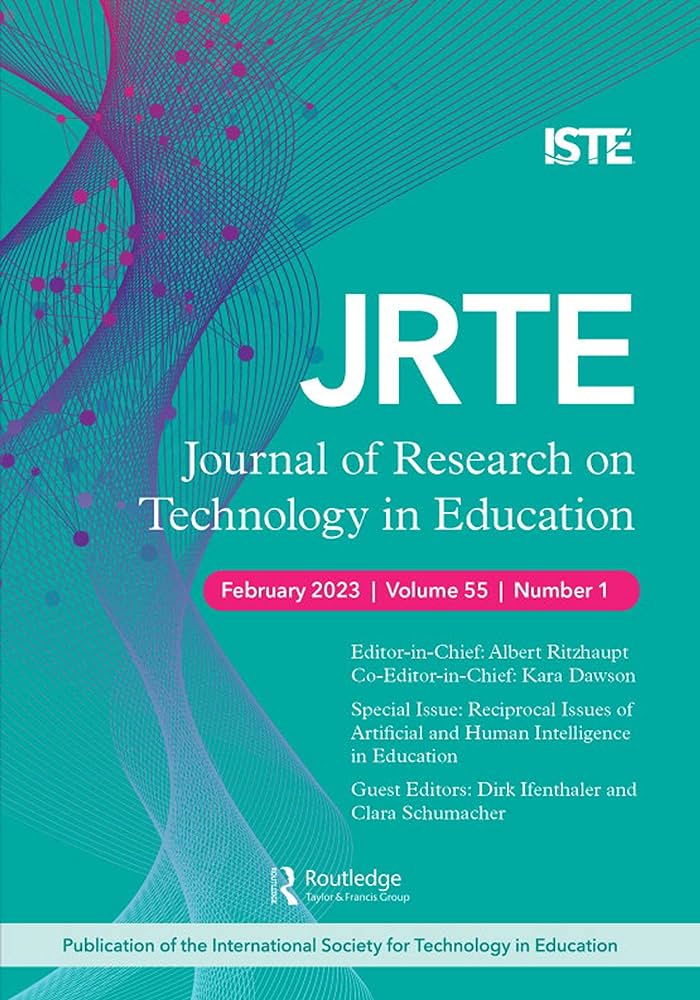Tackling misinformation through online information literacy: Structural and contextual considerations
IF 5
2区 教育学
Q1 Social Sciences
Journal of Research on Technology in Education
Pub Date : 2024-01-02
DOI:10.1080/15391523.2023.2280385
引用次数: 0
Abstract
Misinformation has been created and spread for centuries, but the Internet facilitates easy, rapid creation and dissemination of misleading or false information in ways that we are still understanding and adjusting to. Digital misinformation reaches into many realms, from entertainment to health to politics. Without adequate defenses in place, misinformation can—and likely does— affect consequential decisions like whether to be vaccinated or who to vote for. Given the scale of these threats, a wide range of responses are necessary, including platform reforms, policy changes, and educational efforts. We are broadly focused on educational efforts, or efforts to slow both the supply of and the demand for misinformation by supporting people to recognize, evaluate, and refrain from sharing misinformation. Efforts in this area vary widely in their scope and approach. For example, some projects attempt to inoculate users against common misinfor-mation tactics like using emotional language and discrediting opponents (e.g. Roozenbeek et al., 2022). Others embed short messages in social media platforms to remind users to verify sources and claims (e.g. Panizza et al., 2022). Yet another approach focuses on labeling or debunking misinformation as it surfaces on platforms, either by attaching fact checks to articles with questionable claims (e.g. Clayton et al., 2020; Pennycook et al., 2020) or by circulating new posts that directly address common claims made by misinformation (e.g. about COVID-19; Vraga & Bode, 2021). All of these efforts have shown promise in tackling misinformation and reaching wide audiences. However, these are mostly quick, lightweight interventions that may struggle to fundamentally shift people’s approaches to evaluating digital information. In this special issue, we focus on efforts to cultivate online information literacy, or the knowledge, skills,通过网络信息扫盲应对错误信息:结构和背景考虑因素
几个世纪以来,误导信息一直在制造和传播,但互联网使误导或虚假信息的制造和传播变得更加方便、快捷,而我们仍在不断了解和适应这种方式。数字错误信息涉及许多领域,从娱乐到健康再到政治。如果没有足够的防御措施,错误信息可能会影响到是否接种疫苗或投票给谁等重大决策。鉴于这些威胁的规模,有必要采取广泛的应对措施,包括平台改革、政策变革和教育工作。我们广泛关注教育工作,或通过支持人们识别、评估和避免分享错误信息来减缓错误信息的供求。这一领域的工作在范围和方法上差异很大。例如,一些项目试图让用户避免使用情绪化语言和诋毁对手等常见的错误信息传播策略(如 Roozenbeek 等人,2022 年)。还有一些项目在社交媒体平台上嵌入短信息,提醒用户核实信息来源和说法(如 Panizza 等人,2022 年)。还有一种方法是在错误信息出现在平台上时对其进行标注或揭穿,方法是对有疑问的文章进行事实核查(如 Clayton 等人,2020 年;Pennycook 等人,2020 年),或者发布新的帖子,直接回应错误信息中的常见说法(如关于 COVID-19 的帖子;Vraga & Bode,2021 年)。所有这些努力都显示出在应对误导信息和覆盖广泛受众方面的前景。然而,这些大多是快速、轻量级的干预措施,可能难以从根本上改变人们评估数字信息的方法。在本特刊中,我们将重点关注培养网络信息素养(或知识、技能)的工作、
本文章由计算机程序翻译,如有差异,请以英文原文为准。
求助全文
约1分钟内获得全文
求助全文
来源期刊

Journal of Research on Technology in Education
EDUCATION & EDUCATIONAL RESEARCH-
CiteScore
11.70
自引率
5.90%
发文量
43
期刊介绍:
The Journal of Research on Technology in Education (JRTE) is a premier source for high-quality, peer-reviewed research that defines the state of the art, and future horizons, of teaching and learning with technology. The terms "education" and "technology" are broadly defined. Education is inclusive of formal educational environments ranging from PK-12 to higher education, and informal learning environments, such as museums, community centers, and after-school programs. Technology refers to both software and hardware innovations, and more broadly, the application of technological processes to education.
 求助内容:
求助内容: 应助结果提醒方式:
应助结果提醒方式:


